Important to know!
Slowly introduce unfamiliar plants or amounts into the diet to prevent digestive problems.
This is especially for animals who, up to this point, have been given fresh food in rations. This is because they tend to eat too fast and in too large an amount. Usually the migration works with many small portions given separately over the course of the day. Over time you should slowly increase the volume of each portion.
Vegetables
Root vegetables are high in calories. They are good if you need to fatten up your rabbits. They are good as a winter food. Overweight rabbits should be fed low calorie vegetables.
Unsuitable vegetables: Eg. bulb plants (onions, chives), legumes (beans, lentils, peas), raw potato, eggplant.
Oxalic acid: High amounts promote kidney problems & bladder stones.
Solanine: High amounts can cause circulatory problems, nervous system problems & gastro-intestinal problems. Found in capsicum, potatoes & tomatoes.
Flatulent cabbage plants are unsuitable for rabbits that are fed commercial dried food!
Lettuces are often sprayed & polluted with pesticides. Remove the outer leaves before feeding. Do not feed the stem becauses it is high in nitrates.
Artichoke
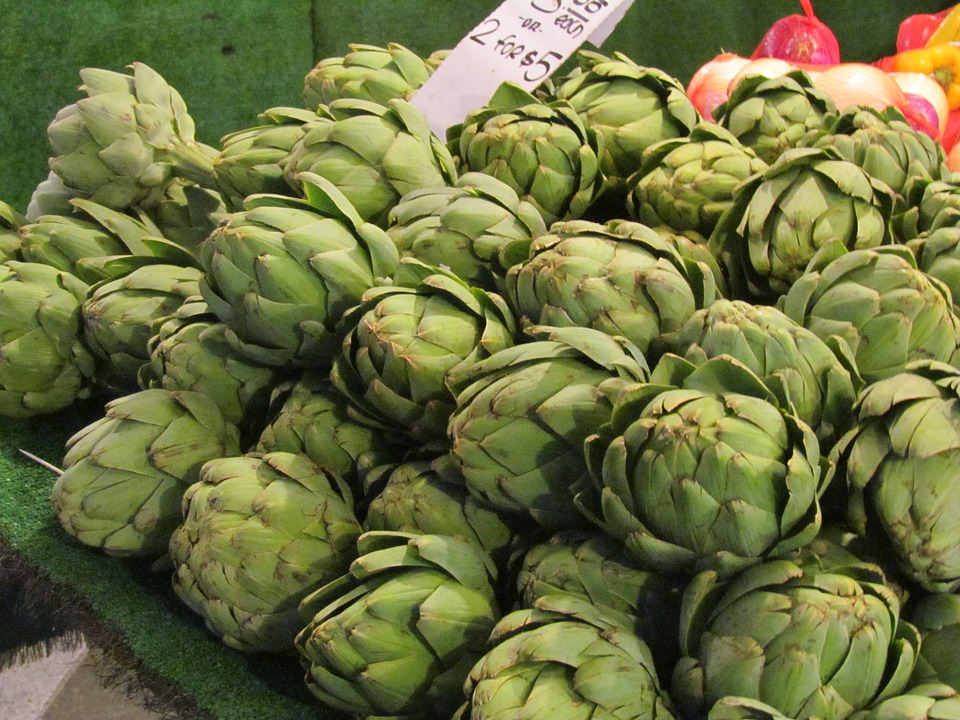
Feed rarely (1-2 times a week) and in small amounts. All components of the fruit are edible. High in calories, contains bitter compounds.
![]() Helps with: lack of appetite, liver disease.
Helps with: lack of appetite, liver disease.
Asparagus

Feed very rarely, in small amounts. Green & white variety is edible. Low in calories. High water content. Rich in minerals.
![]() Helps with: bladder sludge, kidney problems & weight loss.
Helps with: bladder sludge, kidney problems & weight loss.
![]() Avoid when: diarrhea.
Avoid when: diarrhea.
Beetroot

Feed rarely (1-2 times a week) and in small amounts. High in calories. Rich in minerals & vitamins. Contains oxalic acid. Can discolour the urine.
![]() Helps with: weight gaining.
Helps with: weight gaining.
![]() Avoid when: want to lose weight, intestinal parasites & bladder sludge.
Avoid when: want to lose weight, intestinal parasites & bladder sludge.
Belgian Endive
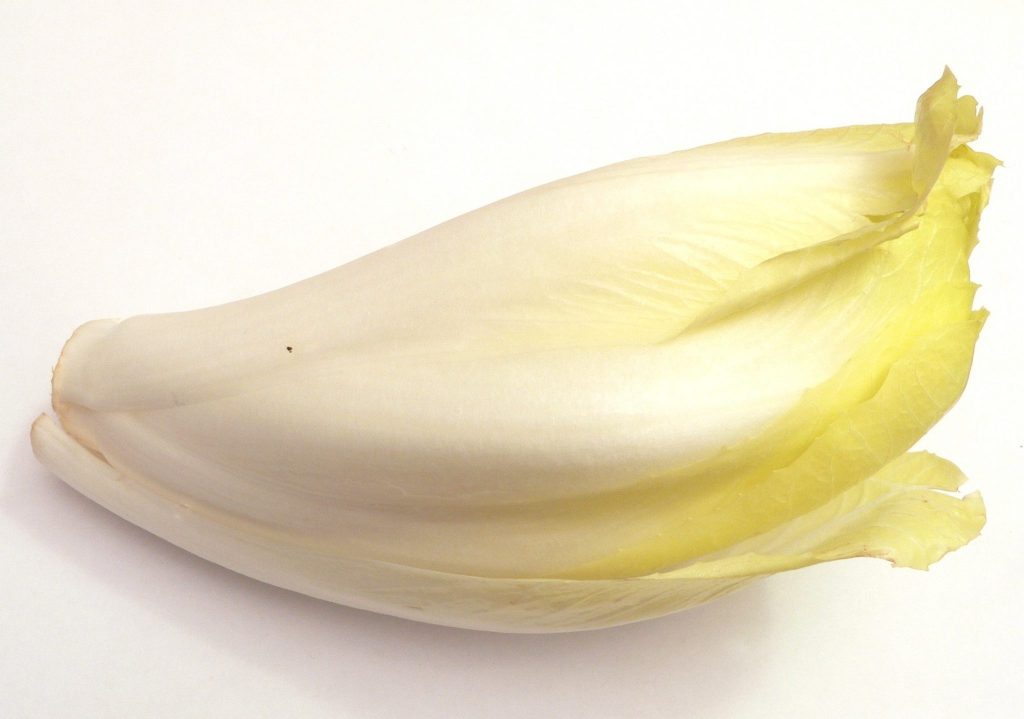
Can be given daily after slowly introduced. Contains bitter compounds. Outer leaves contain oxalic acid.
![]() Helps with: lack of appetite, bladder problems, kidney problems & weight loss.
Helps with: lack of appetite, bladder problems, kidney problems & weight loss.
Black Salsify

Feed rarely (1-2 times per week). Rich in minerals.
![]() Helps with: bladder sludge, bladder problems & kidney problems.
Helps with: bladder sludge, bladder problems & kidney problems.
Broccoli

Can be given daily after slowly introduced. Well tolerated cabbage plant. Florets and stalk are edible. Rich in calcium, vitamin A, vitamin C. Contains oxalic acid.
![]() Helps with: boosting the immune system.
Helps with: boosting the immune system.
![]() Avoid when: bladder sludge.
Avoid when: bladder sludge.
Flatulent plant. Unsuitable for rabbits that are fed commercial dried food!
Brussel Sprouts

Feed rarely (1-2 times per week). It is a flatulent cabbage plant. Rich in vitamin B & minerals. Good to feed in winter.
![]() Helps with: boosting the immune system.
Helps with: boosting the immune system.
![]() Avoid when: when your rabbit becomes easily gassy.
Avoid when: when your rabbit becomes easily gassy.
Flatulent cabbage plants are unsuitable for rabbits that are fed commercial dried food!
Cauliflower
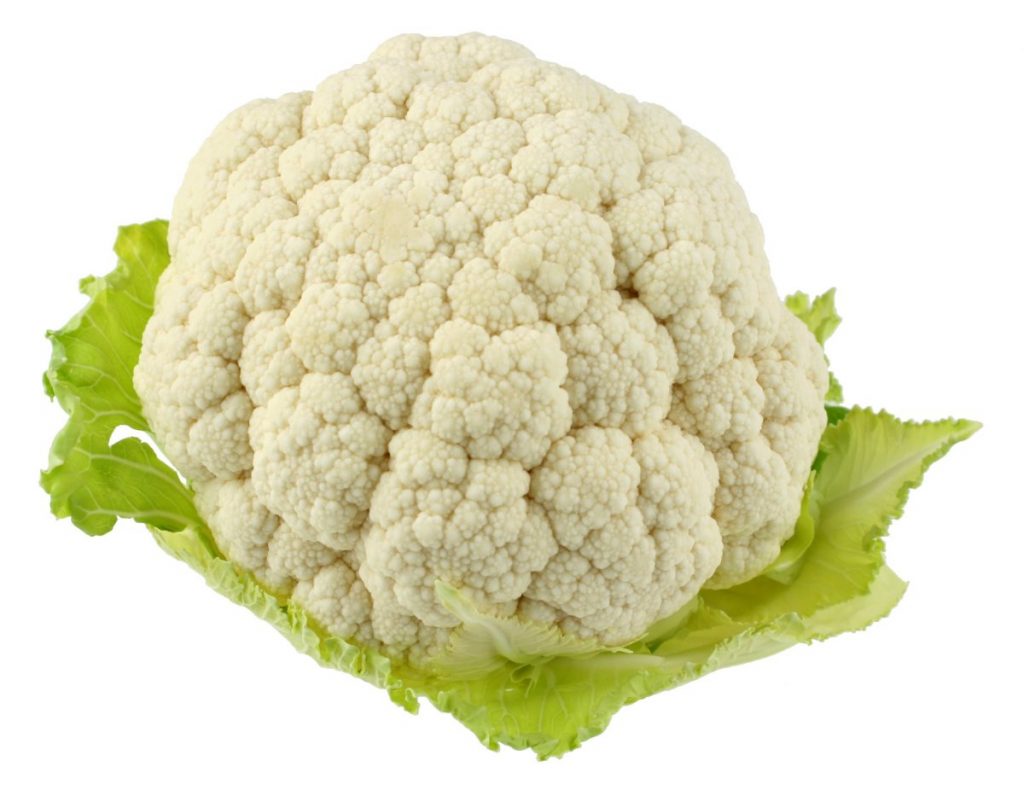
Small amounts can be given daily after slowly introduced. It is a flatulent cabbage plant. Rich in vitamins.
![]() Helps with: boosting the immune system.
Helps with: boosting the immune system.
![]() Avoid when: when your rabbit becomes easily gassy.
Avoid when: when your rabbit becomes easily gassy.
Flatulent cabbage plants are unsuitable for rabbits that are fed commercial dried food!
Cabbage (Only Red & White)

Feed rarely (1-2 times per week). It is a flatulent cabbage plant. Rich in vitamins. Good to feed in winter. Can discolour the urine.
![]() Helps with: boosting the immunge system.
Helps with: boosting the immunge system.
![]() Avoid when: when your rabbit becomes easily gassy.
Avoid when: when your rabbit becomes easily gassy.
Flatulent cabbage plants are unsuitable for rabbits that are fed commercial dried food!
Carrot
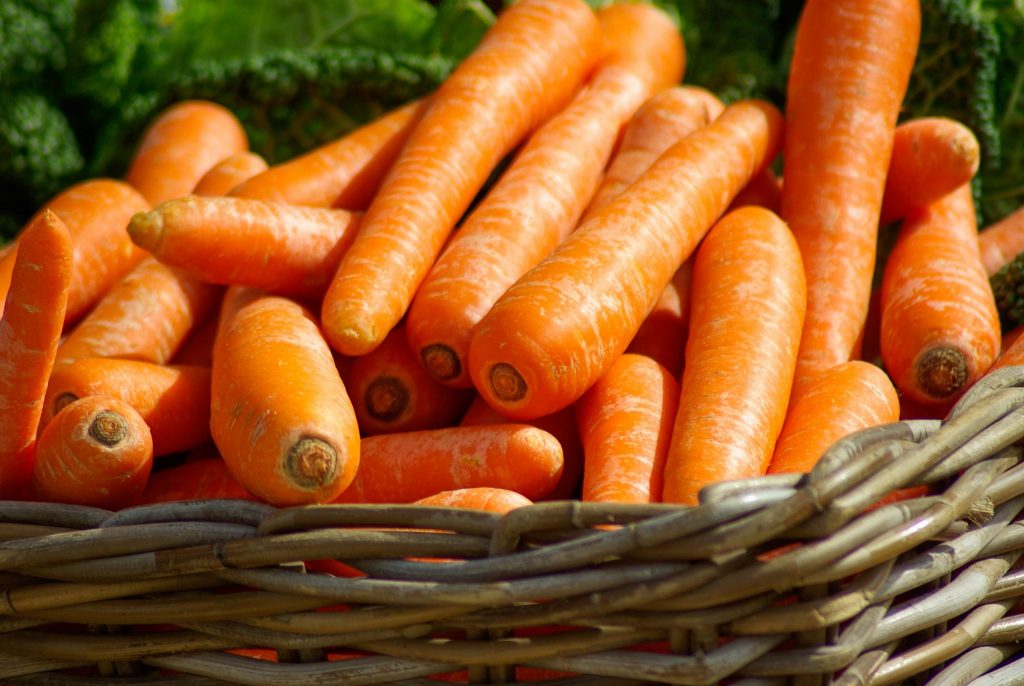
Can be given daily. Well tolerated. High in calories. Rich in vitamins and minerals. Can discolour the urine.
![]() Helps with: introducing fresh food for the first time, weight gaining & lack of appetite.
Helps with: introducing fresh food for the first time, weight gaining & lack of appetite.
![]() Avoid when: want to lose weight & intestinal parasites.
Avoid when: want to lose weight & intestinal parasites.
Carrot Greens
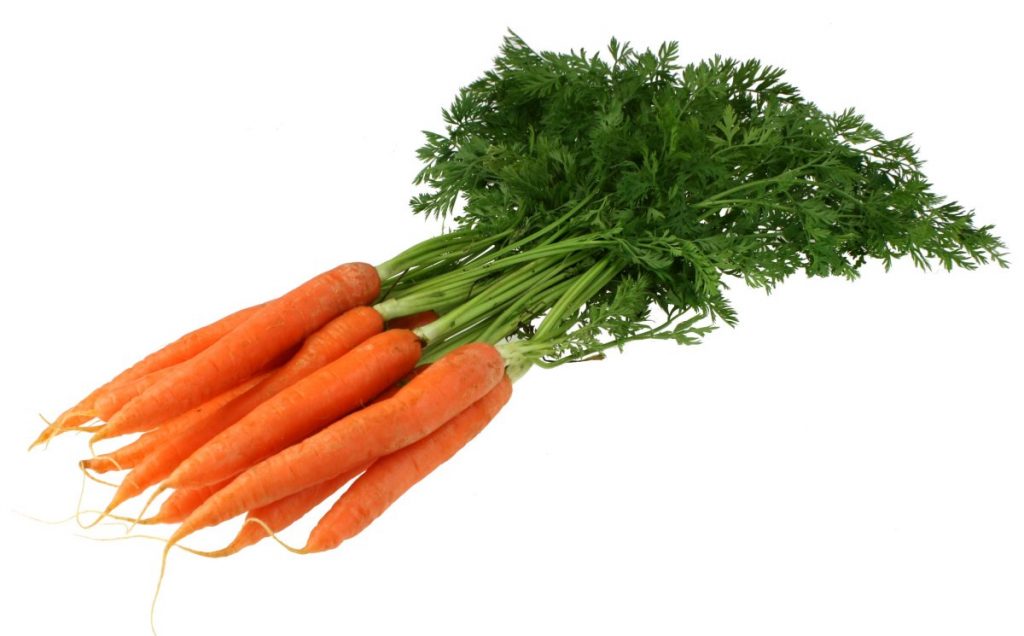
Feed rarely (1-2 times per week). High in calcium.
![]() Avoid when: bladder sludge.
Avoid when: bladder sludge.
Capsicum
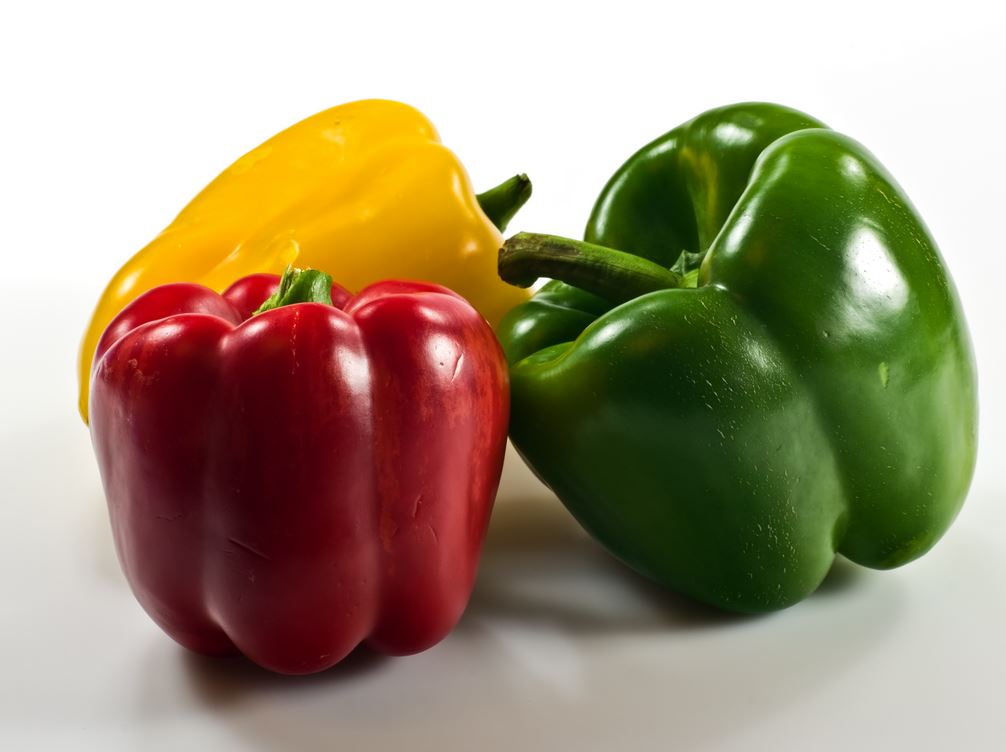
Feed rarely (1-2 times per week). Remove the stem & core. Only the fruit & the inner skin is edible. Rich in vitamin C.
![]() Helps with: boosting the immune system & summer heat.
Helps with: boosting the immune system & summer heat.
![]() Avoid when: diarrhea.
Avoid when: diarrhea.
Celery

Can be given daily after slowly introduced. Whole plant is edible. Low in calories. Rich in vitamins.
![]() Helps with: weight loss & when your rabbit becomes easily gassy.
Helps with: weight loss & when your rabbit becomes easily gassy.
Celery Root

Can be given daily after slowly introduced. The bulb & leaves are edible. Well tolerated. High in calories. Rich in calcium & iron. Good to feed in winter.
![]() Helps with: digestive problems, weight gaining, common cold & when your rabbit becomes easily gassy.
Helps with: digestive problems, weight gaining, common cold & when your rabbit becomes easily gassy.
![]() Avoid when: bladder sludge, intenstinal parasites & want to lose weight.
Avoid when: bladder sludge, intenstinal parasites & want to lose weight.
Chinese Cabbage
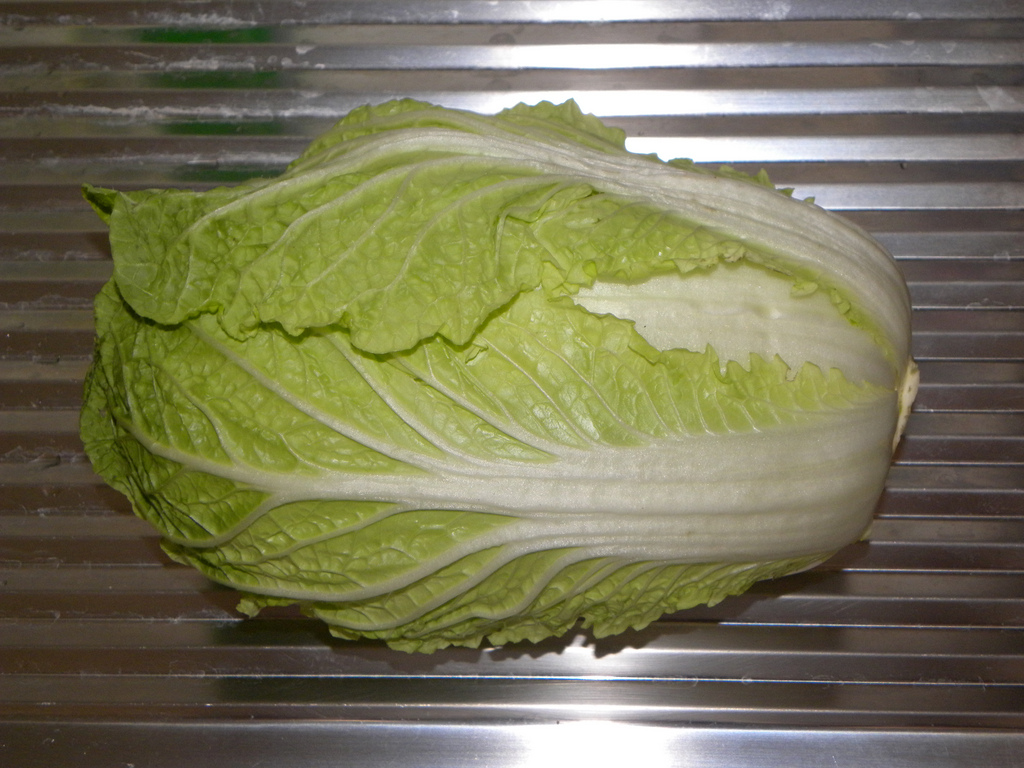
Can be given daily after slowly introduced. It is a cabbage plant. Low in calories. Contains mustard oils.
![]() Helps with: boosting the immune system, weight loss, summer heat & digestive problems.
Helps with: boosting the immune system, weight loss, summer heat & digestive problems.
![]() Avoid when: diarrhea.
Avoid when: diarrhea.
Flatulent cabbage plants are unsuitable for rabbits that are fed commercial dried food!
Corncob with Leaves
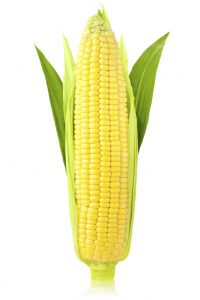
Feed the cob very rarely, in small amounts. High in calories. High in starch.
Leaves can be given daily after slowly introduced. Make sure has not been sprayed. Rich in vitamins.
![]() Avoid when: want to lose weight & intestinal parasites.
Avoid when: want to lose weight & intestinal parasites.
Cucumber

Feed rarely (1-2 times per week). Low in calories. High water content. Must always peel the skin.
![]() Helps with: weight loss & summer heat.
Helps with: weight loss & summer heat.
![]() Avoid when: diarrhea.
Avoid when: diarrhea.
Curled Lettuce
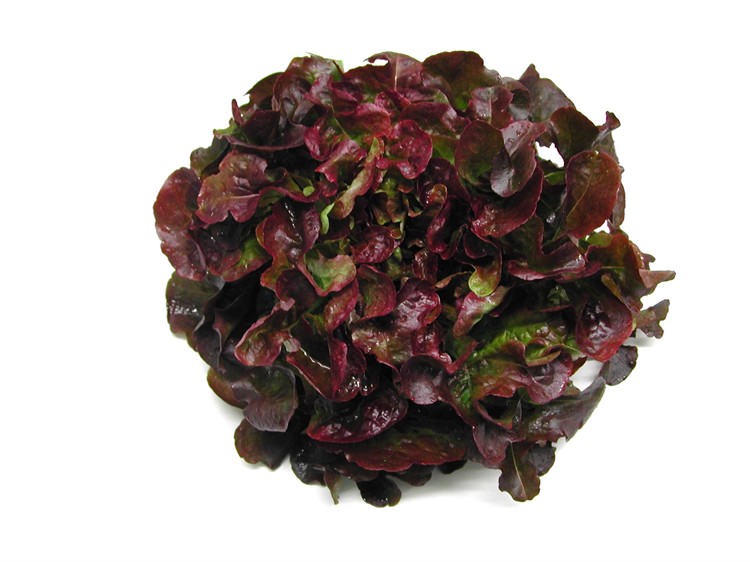
Can be given daily after slowly introduced. Low in calories.
![]() Helps with: bladder sludge, weight loss & summer heat.
Helps with: bladder sludge, weight loss & summer heat.
![]() Avoid when: diarrhea & when your rabbit becomes easily gassy.
Avoid when: diarrhea & when your rabbit becomes easily gassy.
Curly Endive
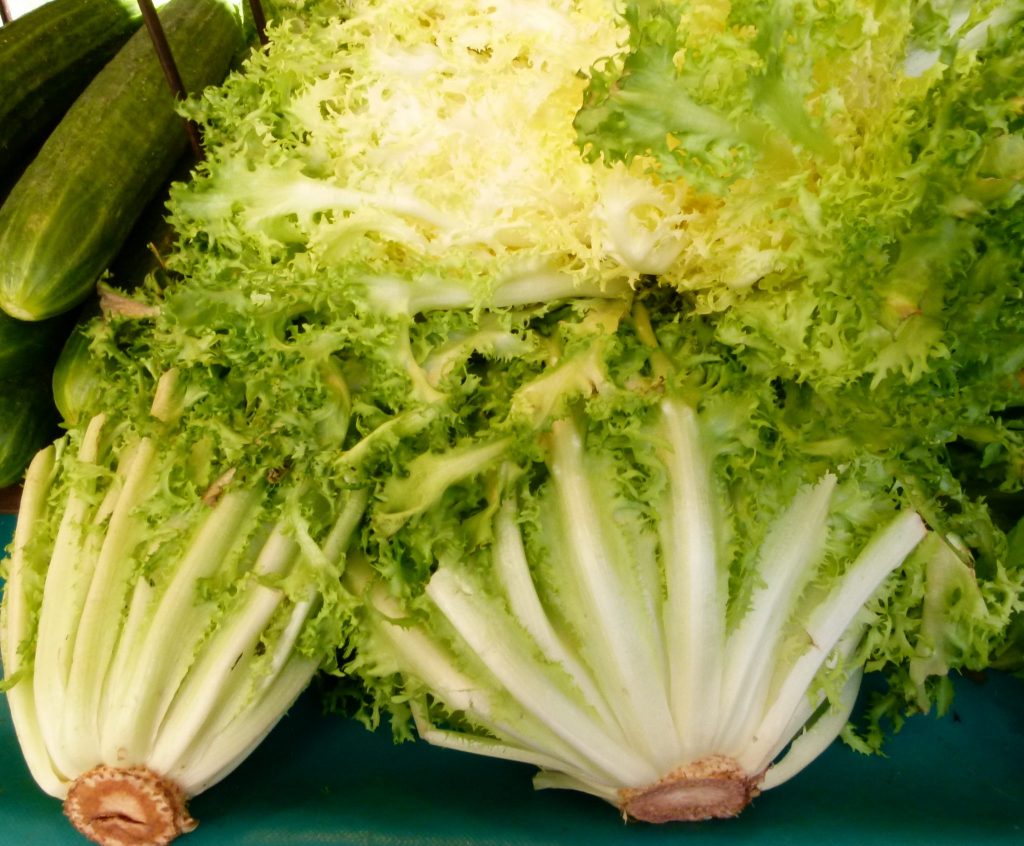
Can be given daily after slowly introduced. Contains bitter compounds. Low in calories.
![]() Helps with: bladder sludge, weightloss & summer heat.
Helps with: bladder sludge, weightloss & summer heat.
![]() Avoid when: diarrhea & when your rabbit becomes easily gassy.
Avoid when: diarrhea & when your rabbit becomes easily gassy.
Endive

Can be given daily after slowly introduced. Contains bitter compounds. High in minerals.
![]() Helps with: lack of appetite, weight loss & bladder sludge.
Helps with: lack of appetite, weight loss & bladder sludge.
![]() Avoid when: diarrhea.
Avoid when: diarrhea.
Fennel

Can be given daily after slowly introduced. Entire bulb is edible. The green part is a delicacy for bunnies. High in oxalic acid. Rich in calcium & vitamins. Can discolour the urine.
![]() Helps with: introducing fresh food for the first time, boosting the immune system, digestive problems, common cold & pregnancy.
Helps with: introducing fresh food for the first time, boosting the immune system, digestive problems, common cold & pregnancy.
![]() Avoid when: bladder sludge.
Avoid when: bladder sludge.
Iceberg Lettuce

Can be given daily after slowly introduced. Low in calories.
![]() Helps with: bladder sludge, weight loss & summer heat.
Helps with: bladder sludge, weight loss & summer heat.
![]() Avoid when: diarrhea & when your rabbit becomes easily gassy.
Avoid when: diarrhea & when your rabbit becomes easily gassy.
Jerusalem Artichoke
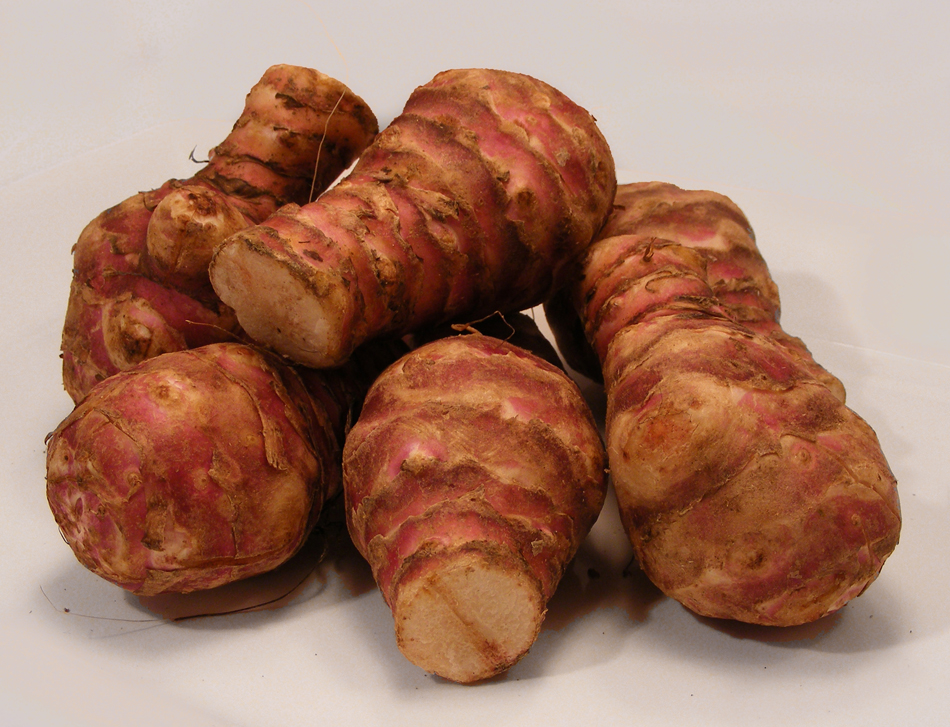
The bulb is fed very rarely. The plant can be given rarely (1-2 times a week) after slowly introduced. Good to feed in winter.
![]() Helps with: weight gaining.
Helps with: weight gaining.
![]() Avoid when: want to lose weight & intestinal parasites.
Avoid when: want to lose weight & intestinal parasites.
Kale
Feed rarely (1-2 times a week) and in small amounts. It is a flatulent cabbage plant. Rich in vitamin C & calcium. Good to feed in winter.
![]() Helps with: boosting the immune system.
Helps with: boosting the immune system.
![]() Avoid when: bladder sludge, diarrhea & when your rabbit becomes easily gassy.
Avoid when: bladder sludge, diarrhea & when your rabbit becomes easily gassy.
Flatulent cabbage plants are unsuitable for rabbits that are fed commercial dried food!
Kohlrabi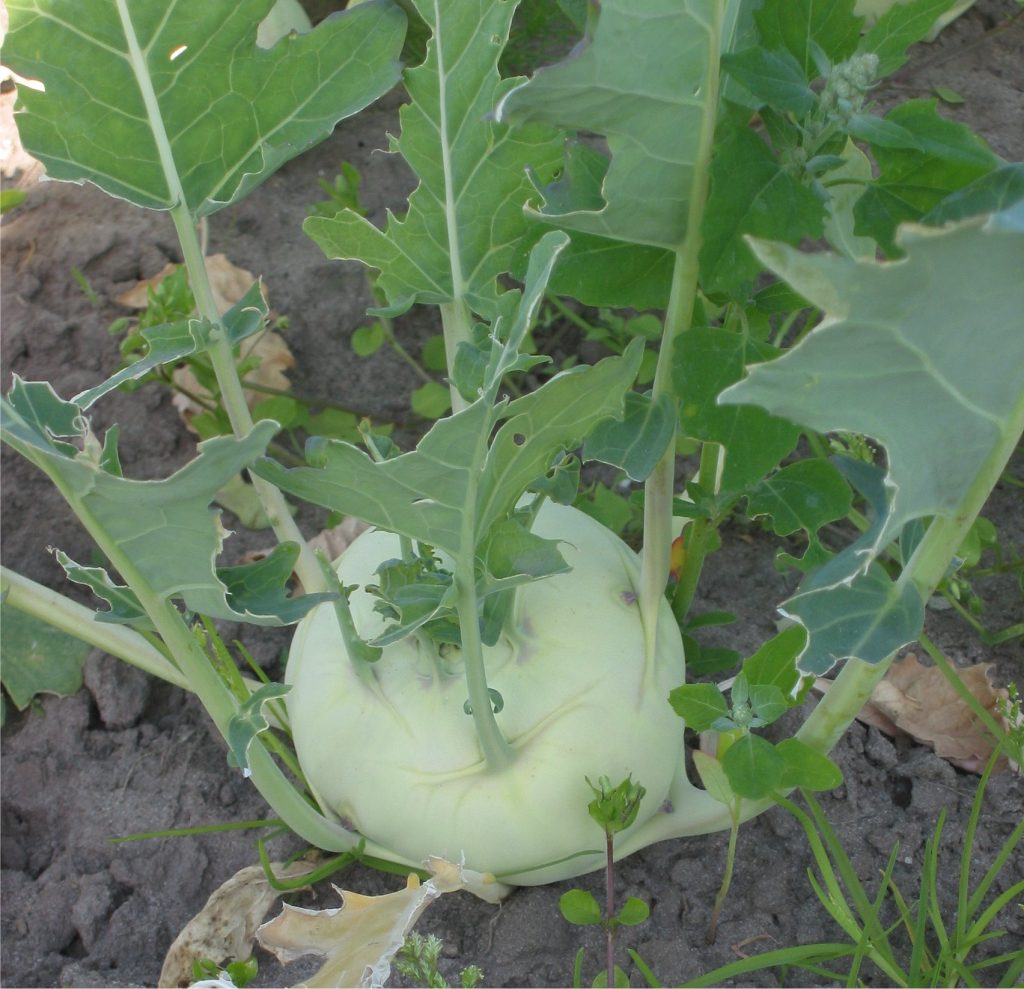
Feed rarely (1-2 times a week). It is a flatulent cabbage plant. Rich in vitamins & potassium.
![]() Avoid when: digestive problems & when your rabbit becomes easily gassy.
Avoid when: digestive problems & when your rabbit becomes easily gassy.
Flatulent cabbage plants are unsuitable for rabbits that are fed commercial dried food!
Lamb’s Lettuce
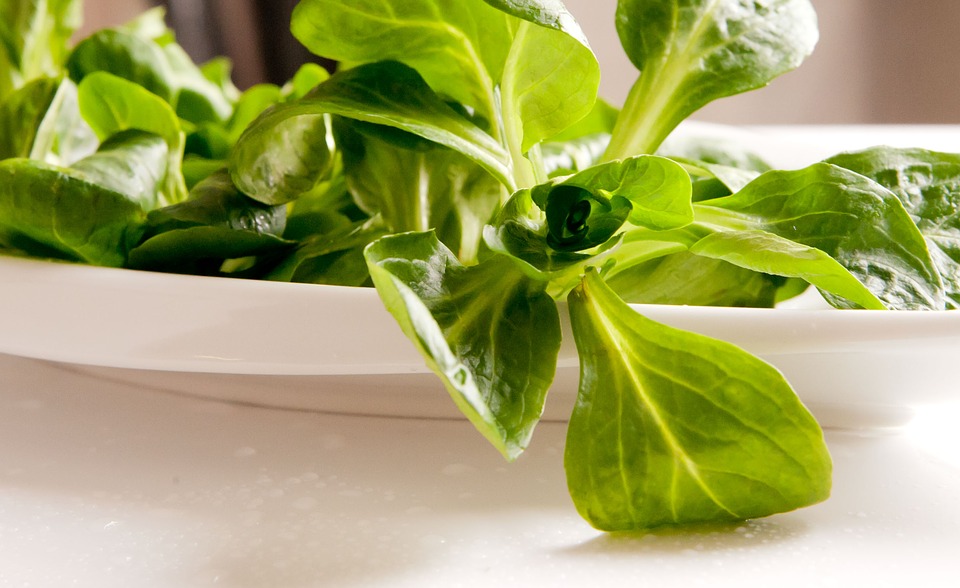
Can be given daily after slowly introduced. Low in calories.
![]() Helps with: bladder sludge & summer heat.
Helps with: bladder sludge & summer heat.
![]() Avoid when: diarrhea & when your rabbit becomes easily gassy.
Avoid when: diarrhea & when your rabbit becomes easily gassy.
Lettuce Hearts

Can be given daily after slowly introduced. Low in calories.
![]() Helps with: weight losss & summer heat.
Helps with: weight losss & summer heat.
![]() Avoid when: diarrhea & when your rabbit becomes easily gassy.
Avoid when: diarrhea & when your rabbit becomes easily gassy.
Leaf Spinach

Feed rarely (1-2 times a week) and in small amounts. High in oxalic acid. Rich in calcium and vitamins.
![]() Avoid when: bladder sludge.
Avoid when: bladder sludge.
Lollo Bionda / Lollo Rosso
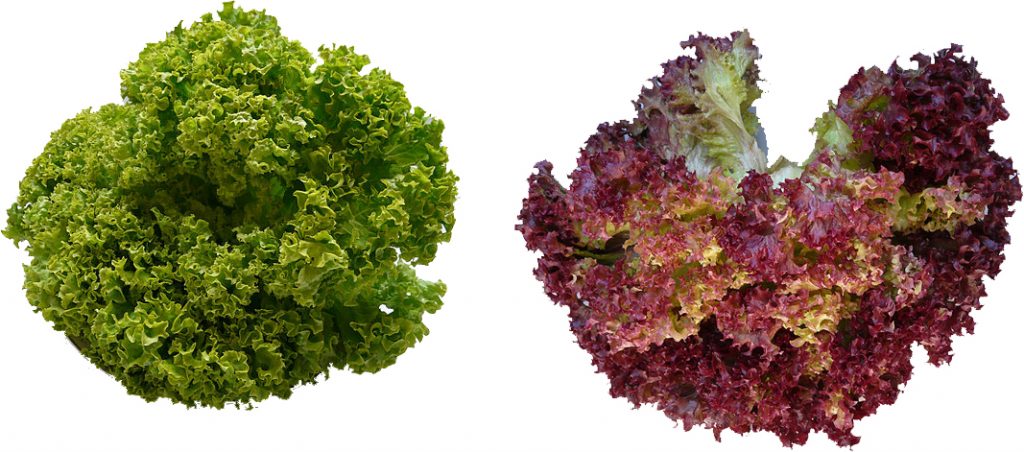
Can be given daily after slowly introduced. Low in calories.
![]() Helps with: bladder sludge, weight loss & summer heat.
Helps with: bladder sludge, weight loss & summer heat.
![]() Avoid when: diarrhea & when your rabbit becomes easily gassy.
Avoid when: diarrhea & when your rabbit becomes easily gassy.
Mangold/Chard

Feed rarely (1-2 times a week), in small amounts. High in oxalic acid. Rich in vitamins, minerals & calcium.
![]() Helps with: boosting the immune system & digestive problems.
Helps with: boosting the immune system & digestive problems.
![]() Avoid when: bladder sludge.
Avoid when: bladder sludge.
May Turnip
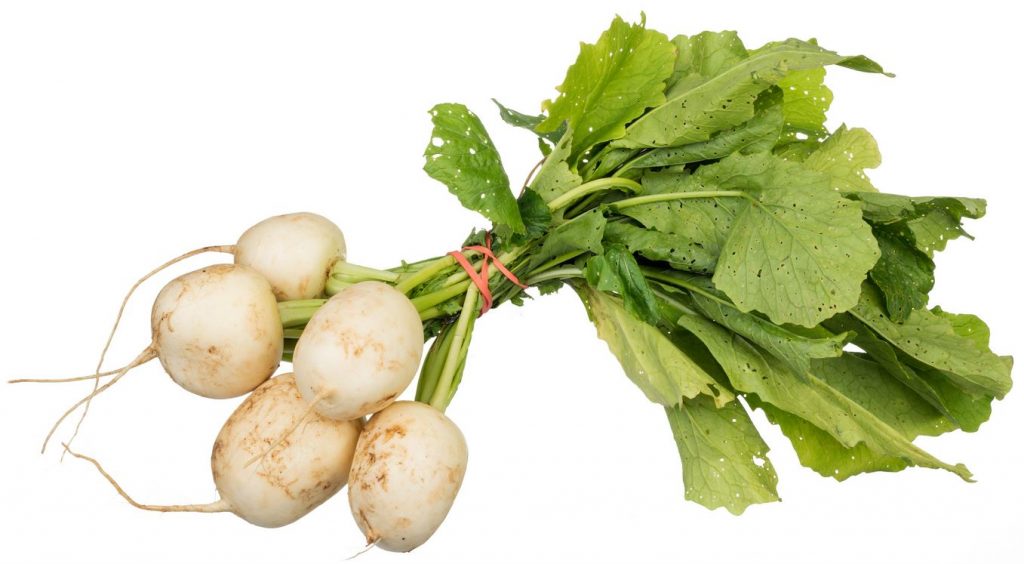
Can be given daily after slowly introduced. Bulb & leaves are edible. Rich in vitamins.
Parsnip
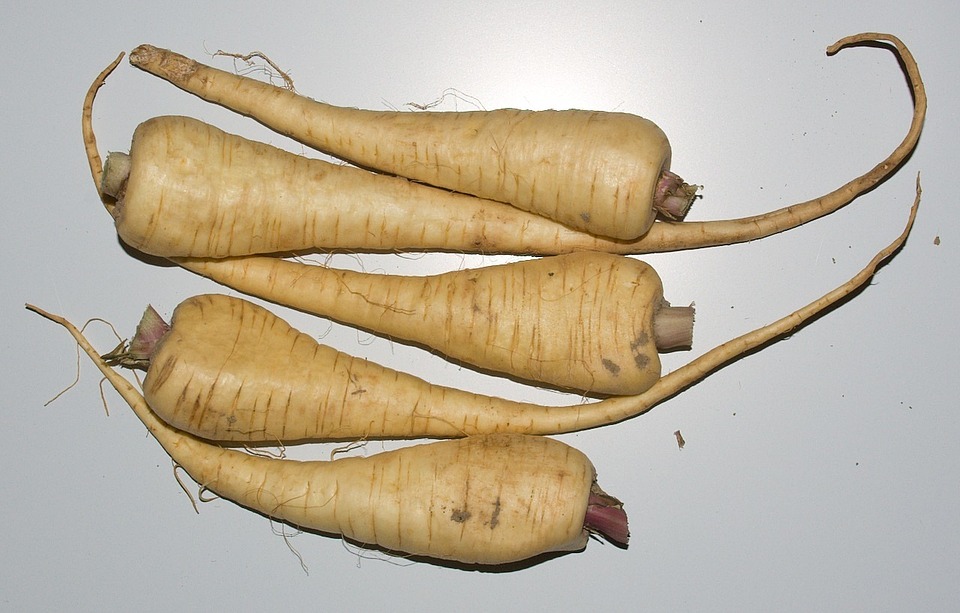
Can be given daily after slowly introduced. High in calories. Rich in vitamins. Good to feed in winter.
![]() Helps with: weight gaining & digestive problems.
Helps with: weight gaining & digestive problems.
![]() Avoid when: want to lose weight & intestinal parasites.
Avoid when: want to lose weight & intestinal parasites.
Parsley Root

Can be given daily after slowly introduced. The root & greens are edible. High in calories. Rich in vitamins. Good to feed in winter.
![]() Helps with: weight gaining & digestive problems.
Helps with: weight gaining & digestive problems.
![]() Avoid when: want to lose weight & intestinal parasites.
Avoid when: want to lose weight & intestinal parasites.
Pointed Cabbage

Feed rarely (1-2 times a week), in small amounts. It is a flatulent cabbage plant. Rich in vitamins. Good to feed in winter. Can discolour the urine.
![]() Helps with: boosting the immune system.
Helps with: boosting the immune system.
![]() Avoid when: your rabbit becomes easily gassy.
Avoid when: your rabbit becomes easily gassy.
Flatulent cabbage plants are unsuitable for rabbits that are fed commercial dried food!
Pumpkin

No ornamental pumpkins!
Feed rarely (1-2 times a week), in small amounts. Remove skin & pips. Rich in vitamins, minerals & silicea. Good to feed in winter. Suitable pumpkins are: hokkaido, button squash, butternut
![]() Helps with: bladder problems, kidney problems, brittle claws & dull fur.
Helps with: bladder problems, kidney problems, brittle claws & dull fur.
Rapini
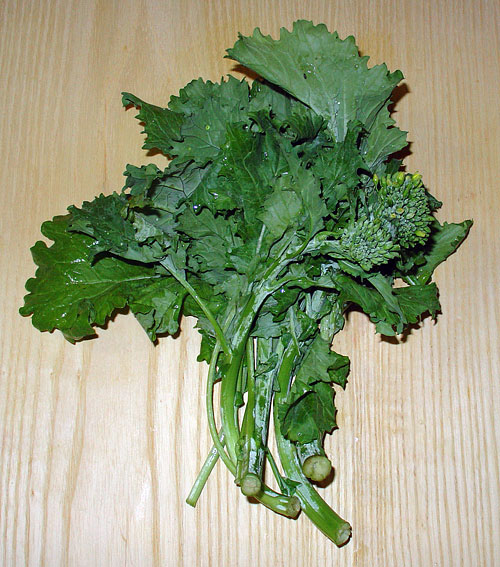
Can be given daily after slowly introduced. Rich in vitamins. Contains mustard oils & folic acid.
![]() Helps with: boosting the immune system, bladder problems & kidney problems.
Helps with: boosting the immune system, bladder problems & kidney problems.
![]() Avoid when: diarrhea.
Avoid when: diarrhea.
Rocket

Feed rarely (1-2 times a week), in small amounts. It is a flatulent cabbage plant. Rich in minerals. Contains a large amount of mustard oils & nitrates.
![]() Helps with: bladder sludge & digestive problems.
Helps with: bladder sludge & digestive problems.
![]() Avoid when: your rabbit becomes easily gassy.
Avoid when: your rabbit becomes easily gassy.
Flatulent cabbage plants are unsuitable for rabbits that are fed commercial dried food!
Savoy Cabbage

Can be given daily, in small amounts, after slowly introduced. It is a flatulent cabbage plant. Rich in vitamins & minerals. Good to feed in winter.
![]() Helps with: boosting the immune system.
Helps with: boosting the immune system.
![]() Avoid when: your rabbit becomes easily gassy.
Avoid when: your rabbit becomes easily gassy.
Flatulent cabbage plants are unsuitable for rabbits that are fed commercial dried food!
Turnip
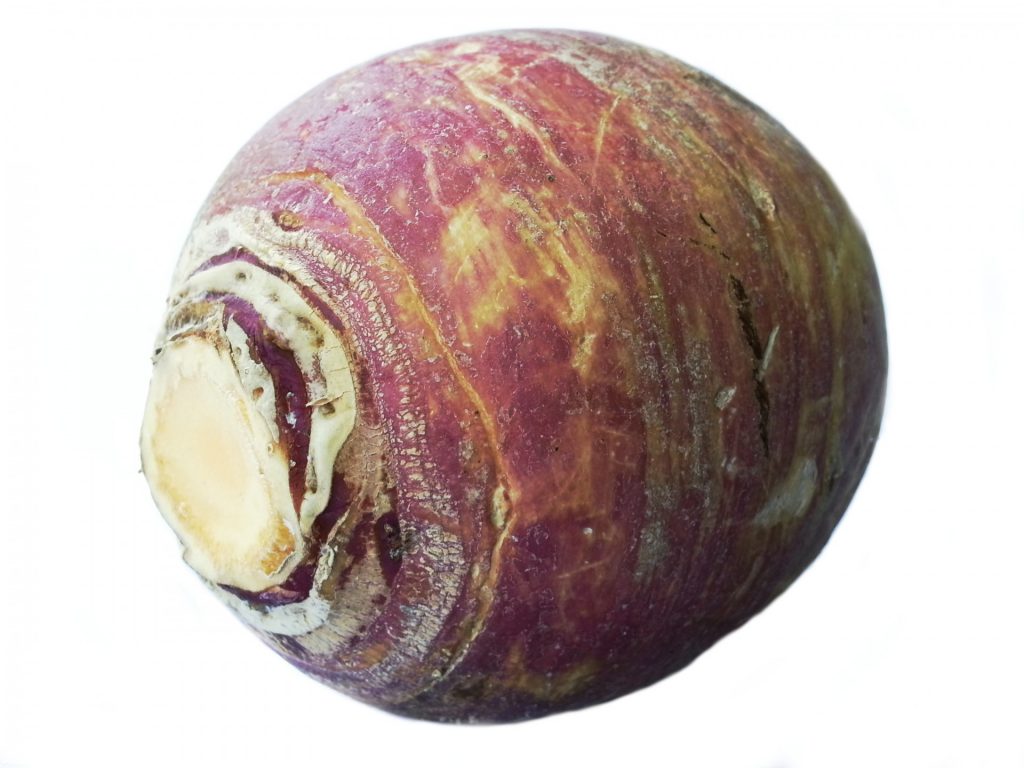
Can be given daily after slowly introduced. High in calories. Rich in vitamin C. Good to feed in winter.
![]() Helps with: weight gaining.
Helps with: weight gaining.
![]() Avoid when: want to lose weight & intestinal parasites.
Avoid when: want to lose weight & intestinal parasites.
Zuccini

Can be given daily after slowly introduced. Low in calories. Rich in minerals.
![]() Helps with: bladder problems, kidney problems & summer heat.
Helps with: bladder problems, kidney problems & summer heat.
![]() Avoid when: diarrhea.
Avoid when: diarrhea.
